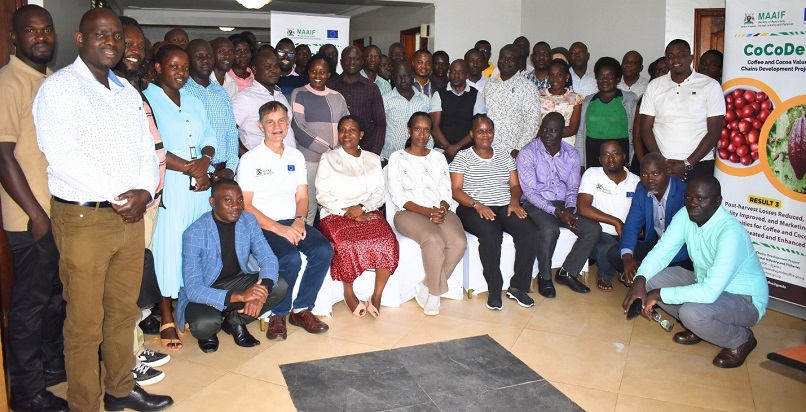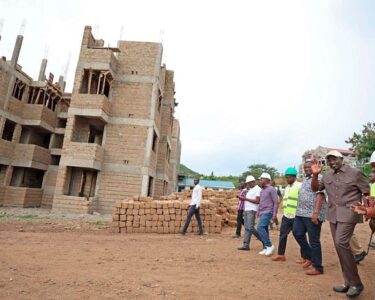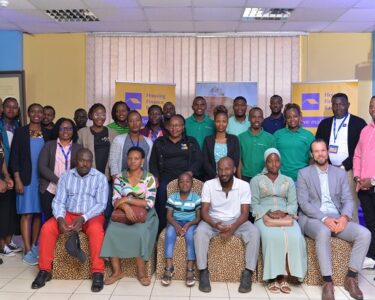By Business Express Reporter
As Uganda’s coffee and cocoa exports continue to expand, the focus is shifting beyond sheer production volumes to embrace sustainable practices, value addition, and certification in order to increase competitiveness and boost farmer incomes. The government and its partners are pushing for a stronger presence of certified Ugandan coffee and cocoa on the international market, recognizing that sustainability has become a necessity rather than a choice. Certification not only guarantees access to premium buyers but also ensures resilience in an increasingly demanding global trade environment.
Despite the enormous benefits, however, the uptake of certification among smallholder farmers has remained low, largely due to knowledge gaps and limited technical skills. For instance, out of the 7.77 million coffee bags exported in the financial year 2023/24—valued at about US$2.22 billion—the percentage of certified coffee remained very small. A similar trend has been seen in cocoa, where exports rose sharply by 88.2% in just two years, moving from an average of US$72.8 million to US$620.43 million, yet certified volumes remain limited.
To address this, the Government of Uganda, working with the European Union under the Coffee and Cocoa Value Chains Development Project (CoCoDev), has launched a comprehensive initiative aimed at increasing the amount of certified coffee and cocoa. A key element of this initiative is the development of a farmer certification guide designed to empower smallholder farmers to successfully navigate certification requirements. CoCoDev, under the Ministry of Agriculture, Animal Industry and Fisheries (MAAIF), has organized intensive five-day training programs for both government and private-sector extension officers across different regions. One such training was recently held in Mbale, targeting 80 extension workers drawn from MAAIF and companies including Kyagalanyi, Bugisu Cooperative Union, Masha Coffee and KAWACOM. The sessions introduced participants to certification schemes such as Organic, Fairtrade, and Rainforest Alliance, equipping them with the knowledge to guide farmers in adopting standards and achieving certification. This Mbale training followed a similar one in Mbarara, ensuring that 160 trained extension workers will be available nationwide to support farmers through the certification journey.
Speaking at the opening ceremony in Mbale, Eunice Kabibi, Assistant Commissioner in the Coffee Department at MAAIF, emphasized that while Uganda has invested heavily in increasing production through initiatives such as the Coffee Roadmap, Vision 2040, and the National Development Plan, volumes alone will not secure international markets. She explained that global buyers are increasingly demanding compliance with sustainability standards, and Uganda must adapt to remain competitive. Kabibi thanked the European Union for supporting the development of the certification guide and extended appreciation to development partners implementing the GreenUp program through CoCoDev, which is helping farmers prepare for sustainable global markets.
Sandra Kamenya, Acting National Project Coordinator of CoCoDev, noted that the project is fully funded by the European Union but implemented through MAAIF as a Government of Uganda initiative. She highlighted that international markets for Uganda’s coffee are expanding, but global trends require certified and sustainably produced products. The certification guide, she explained, will serve as a crucial training tool for extension officers, village agents, cooperative leaders, and farmers. Once trained, these agents will become trainers themselves, multiplying knowledge across communities to help farmers achieve compliance with certification schemes.
CoCoDev’s broader goal is to create jobs and increase household incomes by boosting the production and export of coffee and cocoa. The project is structured around three key result areas: policy and regulation, productivity, and post-harvest handling and marketing. Under the first area, CoCoDev works with the Uganda National Bureau of Standards (UNBS) to review and develop national coffee standards. On the productivity side, it partners with the National Coffee Research Institute (NaCORI) to multiply and distribute high-demand coffee varieties such as K8, K9, and K10, while also conducting research to adapt new varieties to non-traditional growing regions, including West Nile, the cattle corridor, and parts of southwestern Uganda. Under post-harvest handling, CoCoDev emphasizes quality improvement, value addition, and better market access—where sustainable certification plays a central role.
According to Alastair Taylor, Chief Technical Advisor at CoCoDev, certification itself can be considered a form of value addition alongside processing. Certified coffee and cocoa attract higher prices on international markets, ensuring that farmers reap greater rewards. Uganda’s coffee production has risen dramatically from 3.5 million bags in 2017 to nearly 9 million bags today, but experts warn that production growth must be accompanied by strategies to ensure long-term sustainability. Gordon Katwirenabo, Assistant Commissioner in charge of quality at MAAIF’s Coffee Department, cautioned that the key issues Uganda must address include ensuring that coffee farms remain productive for future generations, securing premium prices through sustainability, and dealing with climate change challenges. He observed that Arabica coffee production has already been affected by changing climate patterns, while over 30% of post-harvest losses occur due to poor on-farm and off-farm practices.
Katwirenabo urged extension workers to become ambassadors of sustainability along the coffee and cocoa value chains, ensuring that farmers adopt practices that reduce losses, comply with certification standards, and attract premium buyers. He further linked the certification drive to President Museveni’s directive to add value to Uganda’s agricultural exports, while also urging caution in the overuse of chemicals such as Glyphosate.
The newly launched Coffee and Cocoa Smallholder Farmer Certification Guide is therefore positioned as a critical resource for closing knowledge and technical gaps in Uganda’s value chains. It provides a clear roadmap for public and private extension officers to support farmers in setting up Internal Management Systems, a core requirement for compliance with major international certification schemes. By scaling adoption of certification, Uganda aims not only to secure a larger share of the premium coffee and cocoa markets but also to ensure the resilience and sustainability of two of its most important export sectors.






